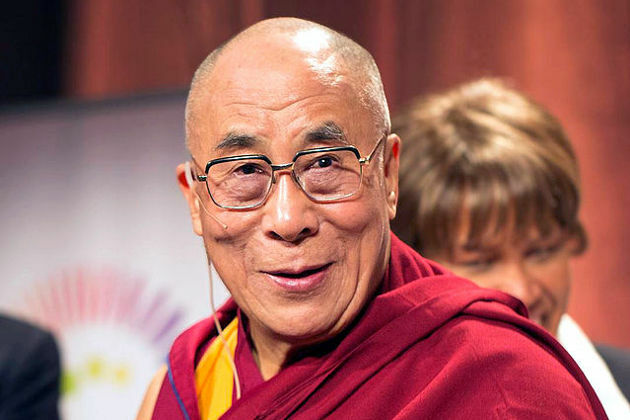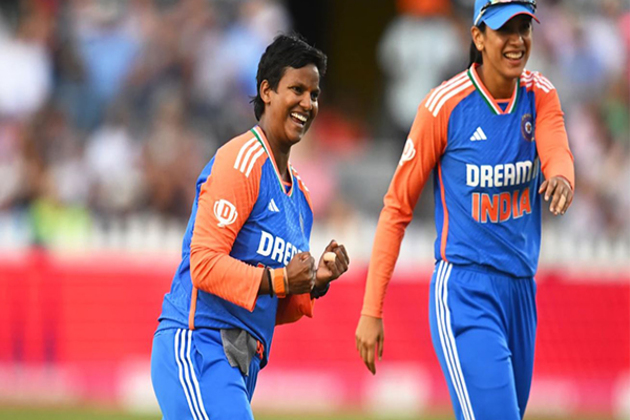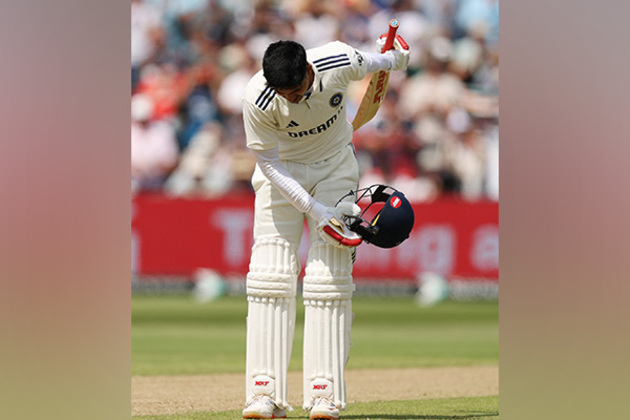Why fidgeting could be good for your child's health
The Conversation
11 Sep 2019, 17:57 GMT+10

Fidgeting is usually considered as a sign of boredom or lack of attention which can be distracting to others. Parents and teachers often demand that their children and pupils stop doing it. But fidgeting could actually be good for their health. Research suggests it might help protect against obesity, improve cardiovascular health, and even save lives.
In our recent study we measured the energy expenditure of 40 children aged four to six, while they each spent an hour in a "whole-room calorimeter". This is a chamber the size of a small bedroom, in which energy expenditure is accurately measured from the amount of oxygen breathed in and the amount of carbon dioxide breathed out.
The children all followed the same procedure in the calorimeter: 30 minutes watching TV, ten minutes drawing or colouring in, and 20 minutes playing with toys on the floor. We counted the number of times children changed posture and took that as our measure of fidgeting.
The fidgeting we witnessed - with colleagues from the Australian universities of Wollongong and Deakin - varied enormously, despite all of the children following the standard set of activities. There were 53 posture changes per hour in the most fidgety third of the sample, and only 11 per hour in the least fidgety third. These differences directly affected the number of calories burned.
The difference between most and least fidgety groups was only around six calories per hour. But when extrapolated over months and years, this could lead to large differences in energy use.
After all, children of that age typically spend around nine to ten hours per day sitting down, so a six calorie difference per hour of sitting would become a difference of 60 calories per day, 420 calories per week (about three bags of crisps), and 22,000 calories per year (equivalent to about 2kg of body weight in a 20kg child).
We also found that children were much less fidgety while watching TV than when drawing, colouring, or playing with toys on the floor. This may partly explain why time spent watching TV increases the risk of obesity so strongly in children of this age compared to other sedentary activities.
Read more: Why screen time for babies, children and adolescents needs to be limited
Meanwhile, an older study found that more fidgety adults resisted weight gain when overfed compared to less fidgety individuals. Taken together, this evidence suggests that differences in the tendency to fidget might partly explain why some people are more susceptible to obesity than others.
Fidgeting as health strategy?
It is now well established that prolonged periods of sitting are harmful to health, and it is possible that fidgeting might reduce the harms of sitting. A study of more than 12,000 adult women in the UK found, as expected, that the amount of time spent sitting per day predicted the risk of premature death over the subsequent 12 years.
At the start of the study the women had been asked to self-rate their tendency to fidget on a scale of one (no fidgeting) to ten (constant fidgeting). In the most fidgety third, the risks of premature death from sitting were substantially reduced compared to the least fidgety third.
Why fidgeting seemed to reduce premature mortality was not explored in that study. However, a more recent laboratory-based study in adults found that the harmful effects of prolonged sitting on blood vessels in the legs (such as reduced blood flow) could be mitigated by asking the study participants to fidget by moving their legs while sitting. Fidgety individuals may have some protection from cardiovascular disease compared to less fidgety individuals
Fidgeting is not considered as being important to health at the moment, but the growing body of research suggests that it should be. The evidence might even lead to new (and much needed) approaches to preventing obesity and promoting cardiovascular health.
Such approaches might be particularly practical as they involve fairly small changes in how we live. Fidgeting or standing breaks during long periods of sitting in the classroom, or at home, far from being an annoying habit, could be precisely what we need.
Authors: John J Reilly - Professor of Physical Activity and Public Health Science, University of Strathclyde | Xanne Janssen - Research Associate, University of Strathclyde 
 Share
Share
 Tweet
Tweet
 Share
Share
 Flip
Flip
 Email
Email
Watch latest videos
Subscribe and Follow
Get a daily dose of Australian Herald news through our daily email, its complimentary and keeps you fully up to date with world and business news as well.
News RELEASES
Publish news of your business, community or sports group, personnel appointments, major event and more by submitting a news release to Australian Herald.
More InformationInternational
SectionThousands gather in Himalayas as Dalai Lama celebrates 90th birthday
DHARAMSHALA, India: The Dalai Lama turned 90 on July 6, celebrated by thousands of followers in the Himalayan town of Dharamshala,...
Fans perform WWII-era Fascist salute at Marko Perković’s mega concert
ZAGREB, Croatia: A massive concert by popular Croatian singer Marko Perković, known by his stage name Thompson, has drawn widespread...
U.S. Treasury Secretary says Musk should steer clear of politics
WASHINGTON, D.C.: Elon Musk's entry into the political arena is drawing pushback from top U.S. officials and investors, as his decision...
TikTok building U.S.-only app amid pressure to finalise sale
CULVER CITY, California: TikTok is preparing to roll out a separate version of its app for U.S. users, as efforts to secure a sale...
Trump defends use of 'Shylock,' citing ignorance of slur
WASHINGTON, D.C.: President Donald Trump claimed he was unaware that the term shylock is regarded as antisemitic when he used it in...
Summer travel in chaos as French air traffic controllers walk off job
PARIS, France: A strike by French air traffic controllers demanding improved working conditions caused significant disruptions during...
Sydney
SectionDeepti Sharma on cusp of top spot in T20I rankings following heroics in England
New Delhi [India], July 8 (ANI): The race for the top spot in ICC T20I Bowlers' Rankings among women is on, with Indian spinner Deepti...
Former spinner believes Jasprit Bumrah is "must" for India at Lord's Test against England
New Delhi [India], July 8 (ANI): Former England spinner Monty Panesar believes the 'world's best' Jasprit Bumrah 'must' return to India's...
After Edgbaston masterclass, Shubman Gill on cusp of several records at Lord's
London [UK], July 8 (ANI): After smashing records with his swashbuckling double hundred and a scintillating ton that ensured India's...
Here's how Shikhar Dhawan wished Sourav Ganguly on his birthday
Mumbai (Maharashtra) [India], July 8 (ANI): Legendary former cricket captain Sourav Ganguly turned 53 on July 8. On such a special...
(SP)CHINA-CHANGSHA-BASKETBALL-CHN VS AUS (CN)
(250708) -- CHANGSHA, July 8, 2025 (Xinhua) -- Yang Shuyu (C) of China breaks through during a friendly match between China and Australia...
American science is in crisis. It's a great opportunity for Australia to snap up top scientists
Science in the United States in in trouble. The National Science Foundation, a key research funding agency, has suffered devastating...













